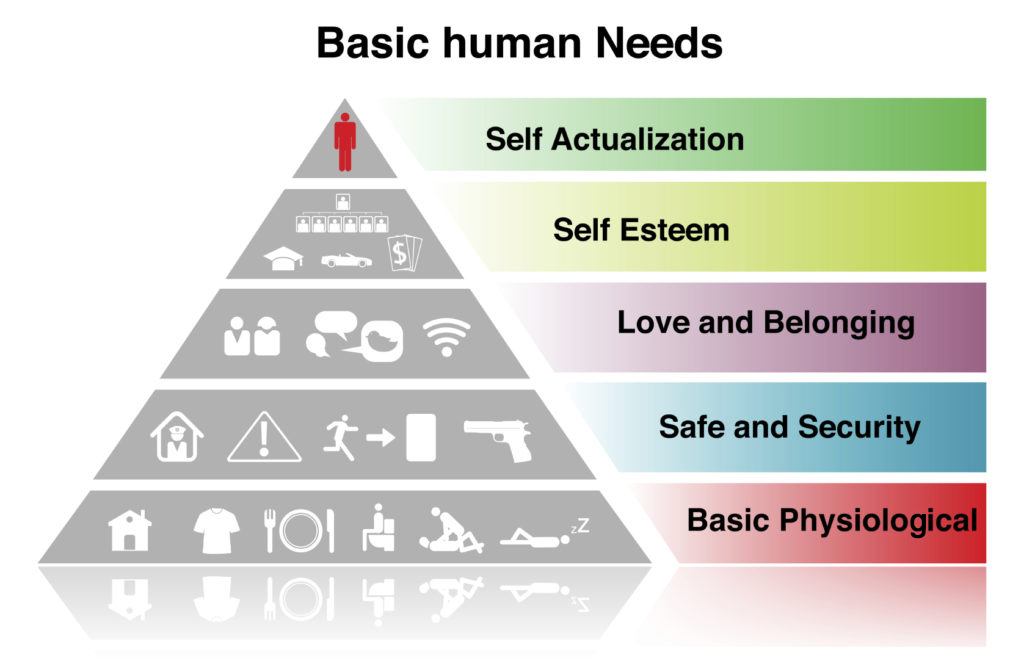 First, understanding this Hierarchy of Needs makes you more aware that we all have many basic requirements that are necessary and essential to our survival, health and well-being and that our behavior is geared toward meetings those needs. It helps you see your own behavior and that of the people with whom you live and work in a different frame of reference. Instead of labeling behavior as “bad” or “selfish” or “misbehavior”, it can be seen as “need-meeting”.
First, understanding this Hierarchy of Needs makes you more aware that we all have many basic requirements that are necessary and essential to our survival, health and well-being and that our behavior is geared toward meetings those needs. It helps you see your own behavior and that of the people with whom you live and work in a different frame of reference. Instead of labeling behavior as “bad” or “selfish” or “misbehavior”, it can be seen as “need-meeting”.
Next, knowing the communication and conflict resolution skills gives you tools that are invaluable in getting many of those needs met, especially Levels 3-5.
A primary goal of the Gordon Model workshops is to expand the size of your No Problem Area in your relationships at work, home and with friends and others.
In many ways, functioning in the No Problem Area, where you can work and live your life to the fullest is very much about being in Level 4 of Maslow.
Active Listening is an essential skill both for helping yourself and for facilitating others in getting in touch with real, underlying needs. When you can listen to yourself and accept your feelings and needs fully, you free yourself to move forward, to grow and develop. Further, self-acceptance leads to acceptance of others as they are—without judgment—and so allows them the same opportunity.
Equally important is the ability to express your feelings and needs in a clear, congruent way so that you can become and remain self-aware and authentic, and can continue to move forward to fulfill your life goals.
And finally, when you’re in conflict with another person, being able to self-disclose and listen with empathy and understanding are necessary skills for identifying the real needs of both people from the start so that the conflict can get resolved and stay resolved.
Take a few minutes to gauge where you are on Maslow’s hierarchy at this point. Also think about the people with whom you live and work and at what level(s) they are/might be functioning. Use this new awareness as you make daily decisions about your own life and as you relate to your family, friends and co-workers.

